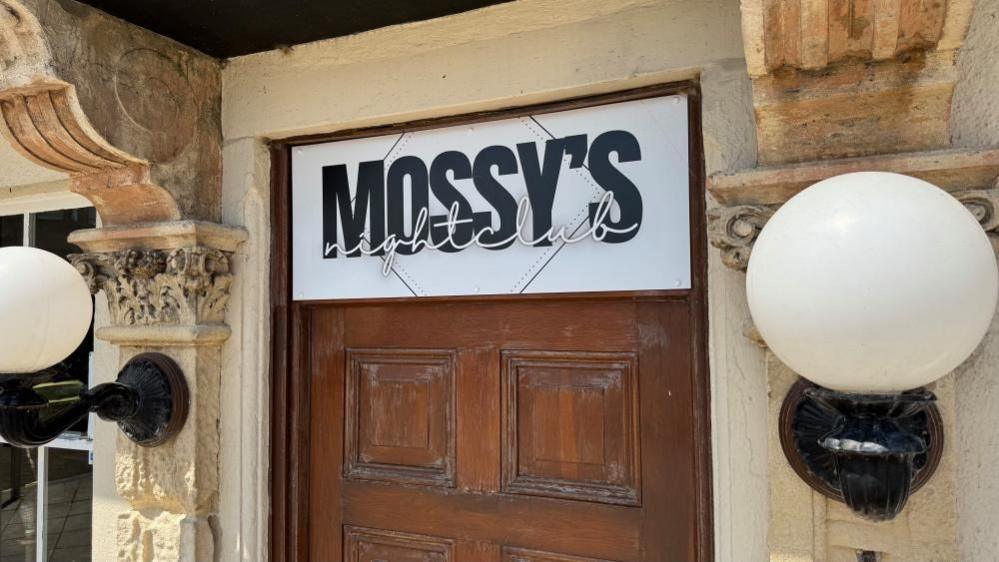Why are so many pubs and clubs closing?

In a five-year period, the number of night-time businesses in the East of England dropped by about 1,000
- Published
Almost 1,000 night-time businesses have closed in the East of England in the past five years, according to the Night Time Industries Association.
The organisation said in March 2020 there were 7,033 bars, clubs and restaurants across Bedfordshire, Hertfordshire, Cambridgeshire, Essex, Suffolk and Norfolk.
As of June this year, that number had dropped to 6,042.
Sports bar Walkabout and nearby nightclub Popworld in Chelmsford both announced that they were closing their doors permanently, while Mossy's Nightclub in Lowestoft, Suffolk, closed for good in July.
Michael Kill, chief executive officer of the association, said: "We are extremely worried. We definitely know that the late-night economy has been hit very hard."
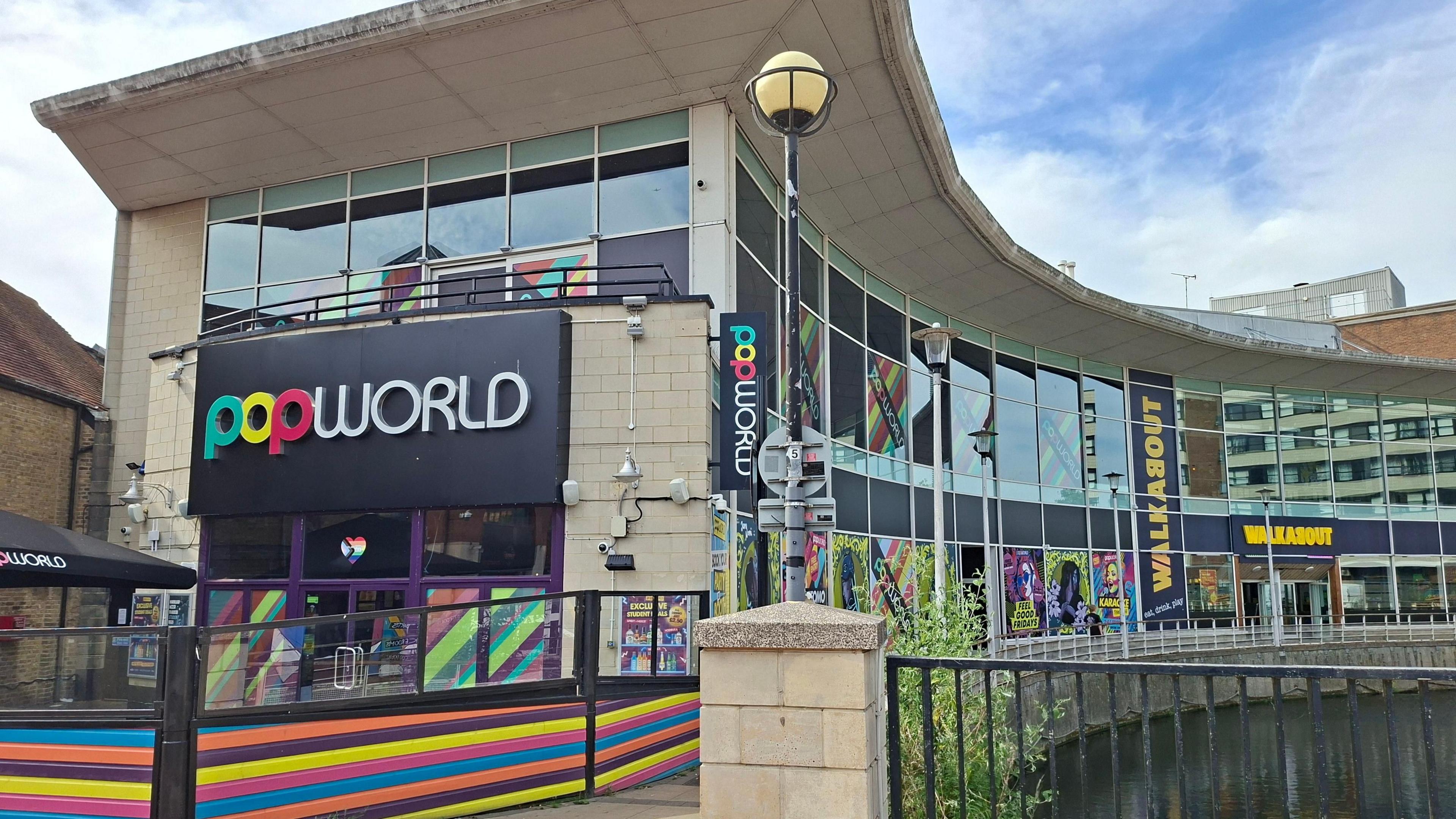
Popworld opened in Chelmsford in 2018 and the sports bar Walkabout opened in 2016
Mr Kill said there were many factors to venues shutting, such as rising operational costs, safety, transport and people lacking a disposable income.
He added that a work-from-home culture also led to people being less likely to visit pubs or restaurants on their lunch breaks with colleagues.
"We have challenges with travel infrastructure post 23:00, post midnight," he said.
"Safety is a real issue; fewer police are on the street, and there are more concerns, particularly around the safety of women and girls.
"There are lots of issues, not just fiscal."
'Young people aren't clubbing'
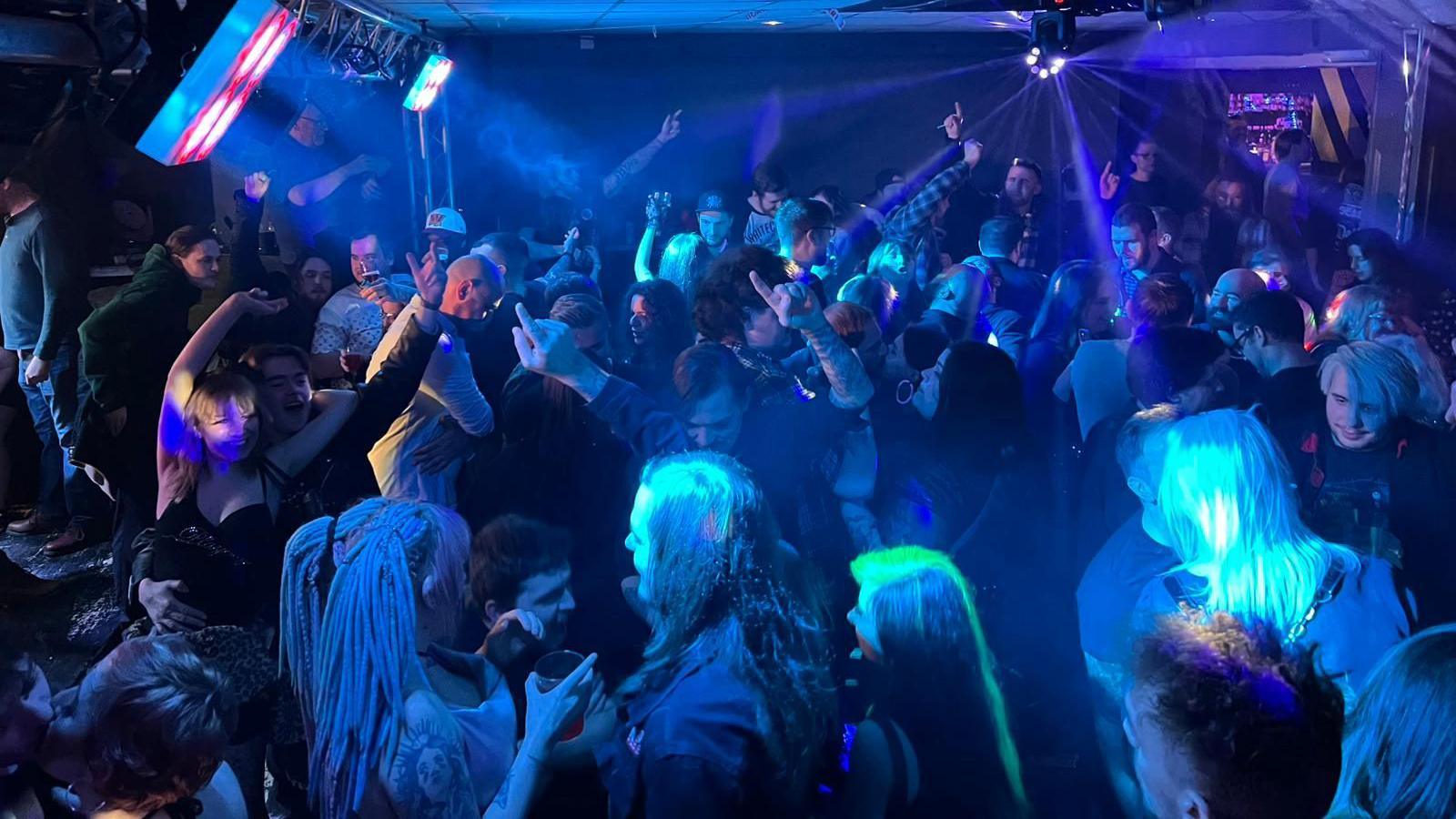
Steve Jason, owner of the Met Lounge, said there was now "no such thing as a club regular"
Steve Jason, who has run Peterborough nightclub and venue The Met Lounge since 1999, said there was a lack of interest from young people in going out.
He said: "The average age of our club night is probably 30 - the majority of clubbing should be 18 to 21-year-olds."
In the past, the venue was filled with young fans of musicians such as Nirvana, Oasis and The Prodigy. But more recently, the club has put on themed events, such as Disney nights, to draw people in.
"Nowadays there's no such thing as a club regular," he said. "Now we have to diversify and think of different nights because nobody goes to a club four weekends running."
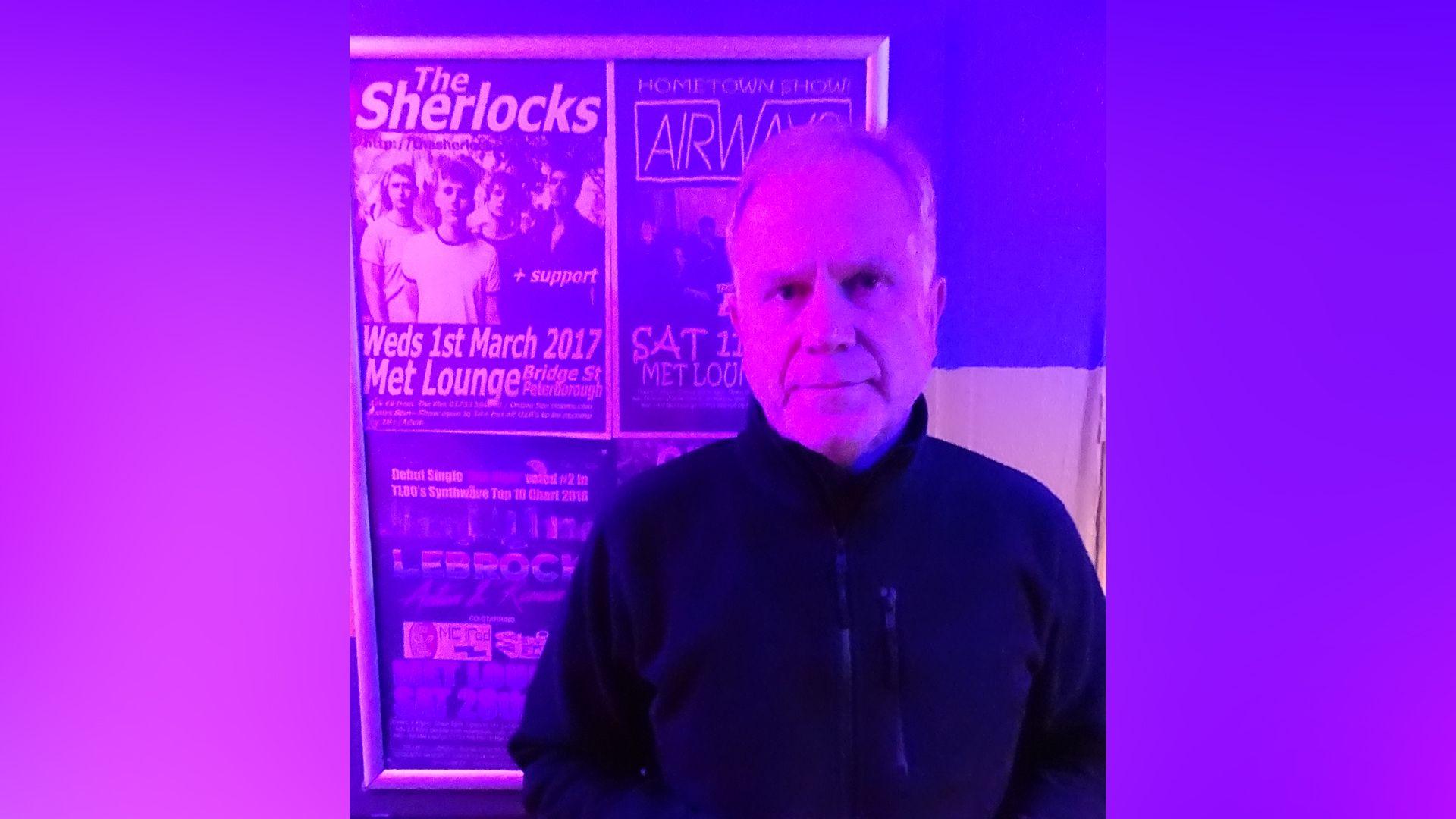
Steve Jason said young people had stopped going out as much
"You speak to a lot of businesses, and they say 'Oh, it's the cost of living', but no, it's not," Mr Jason said.
"They're making excuses... A youngster who's 18 years old probably has a subscription for this, a subscription for that - it takes away his or her money."
He said young people chose to spend their money differently and saved for big events such as festivals over regular nights out.
"Now they're paying for them over six months at £50 a month and that's one festival. You haven't got the money then to do anything else," he added.
Also in Peterborough, a venue on New Road, previously called The Bar, has been earmarked for demolition to make way for the multimillion-pound redevelopment of the city centre.
'Not enough help'
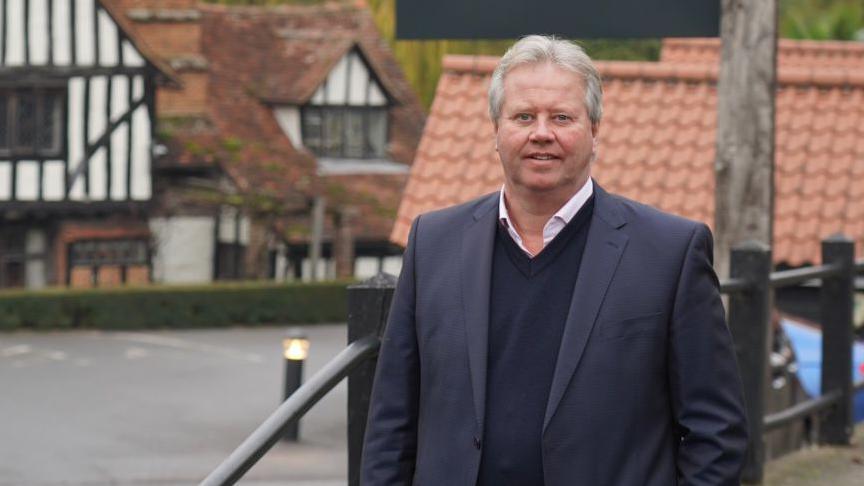
Paul Milsom is the managing director of the Milsom Hotels and Restaurants, which has been in his family for more than 70 years
Paul Milsom is the managing director of Milsom Hotels and Restaurants - a family-run business since 1952 with venues in Essex and Suffolk.
He blamed Brexit, Covid-19 and the cost of living for creating "challenging times" since 2016.
He said: "The challenges economically on all of our businesses are very similar.
"You have got to be positive to be in our game. But politically, we are not getting much help from anyone.
"I don't think the industry spends a lot of time crying out for more help; what it actually needs is less intervention by government and less tax burden."
An HM Treasury spokesperson told the BBC the government intends to introduce permanently low tax rates for retail, hospitality and leisure properties from next year.
"We are a pro-business government that is creating a fairer business rates system to protect the high street, support investment, and level the playing field," the spokesperson added.
'People drink less'
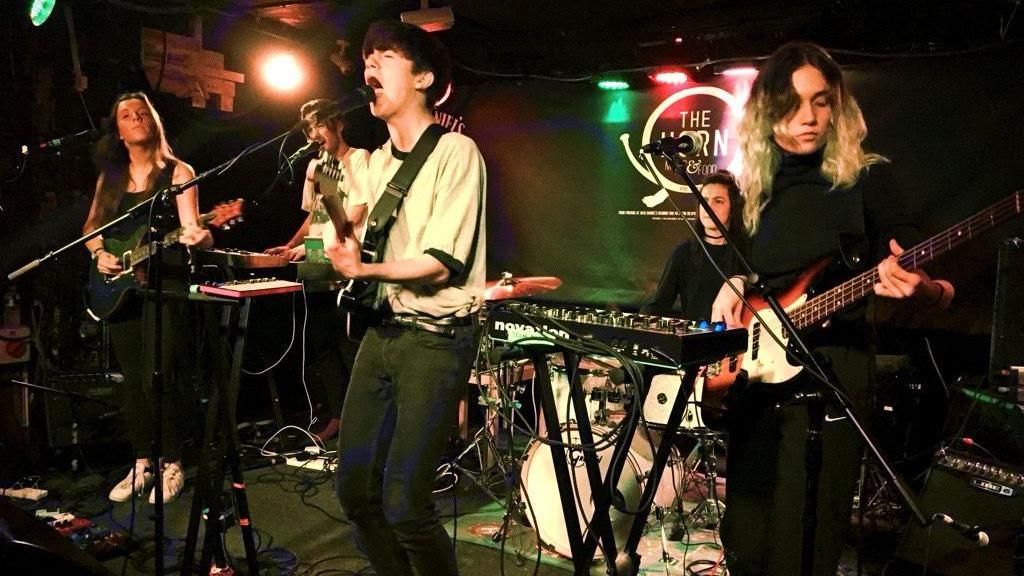
The Horn in St Albans has hosted emerging artists from the local area such as Tom Grennan, Don Broco and Declan McKenna (pictured)
Luke Hinton is the director of Juicebox Live, a music promotion company in Hertfordshire.
The business books all the live music at venues such as Hertford Corn Exchange and The Horn in St Albans.
He said: "We've been in a fortunate position that we've actually seen an increase in attendance year on year since Covid, but we've noticed that spend per head has decreased at both our venues.
"People are spending less, whether it's a health reason or people are generally spending less when they go out, they may be pre-drinking, but I think there is definitely a change in people's behaviours."
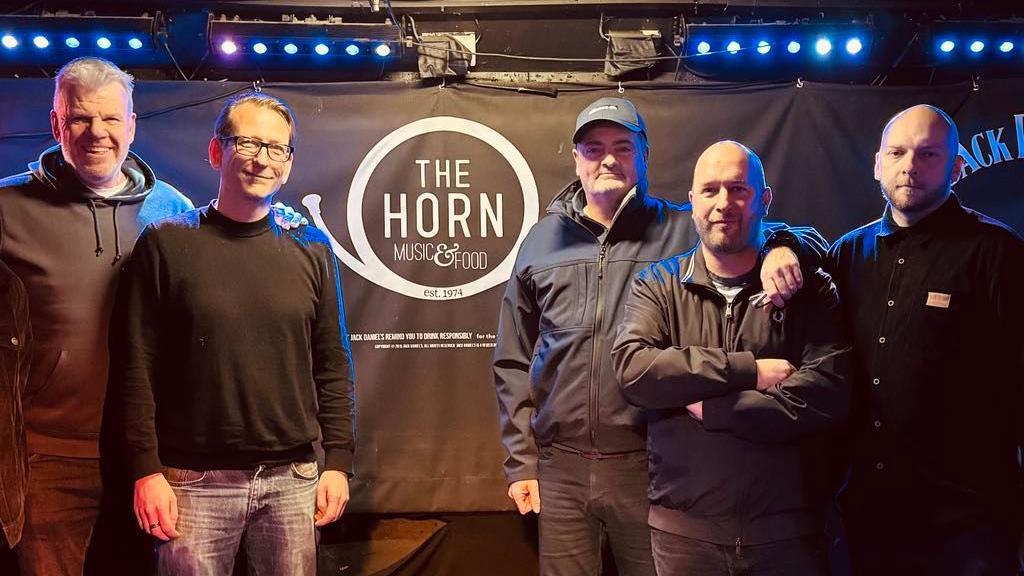
Luke Hinton (second from right) with the the larger management team of The Horn in St Albans
In August 2024, fans rallied to save Club 85 in Hitchin from closure and redevelopment into flats after the landlord retired.
Although the venue is now open until the end of 2025 while its future is negotiated, Mr Hinton warned that many similar venues have already shut due to town centre developments.
"There's been development, lots of housing and flats in town centres, which then obviously doesn't translate into a positive for nightlife because then the noise complaints come in," he explained.
Mr Hinton remained hopeful that people would return to venues if they saw the important role they played in the community.
He said: "It's about going out and being around people. I think that's the thing that humans should do, generally, is be in contact with others and socialise.
"I think that those places and hospitality places are a hub of that."
Get in touch
Do you have a story suggestion for Essex?
Follow Essex news on BBC Sounds, Facebook, external, Instagram, external and X, external.
Related topics
- Published28 June
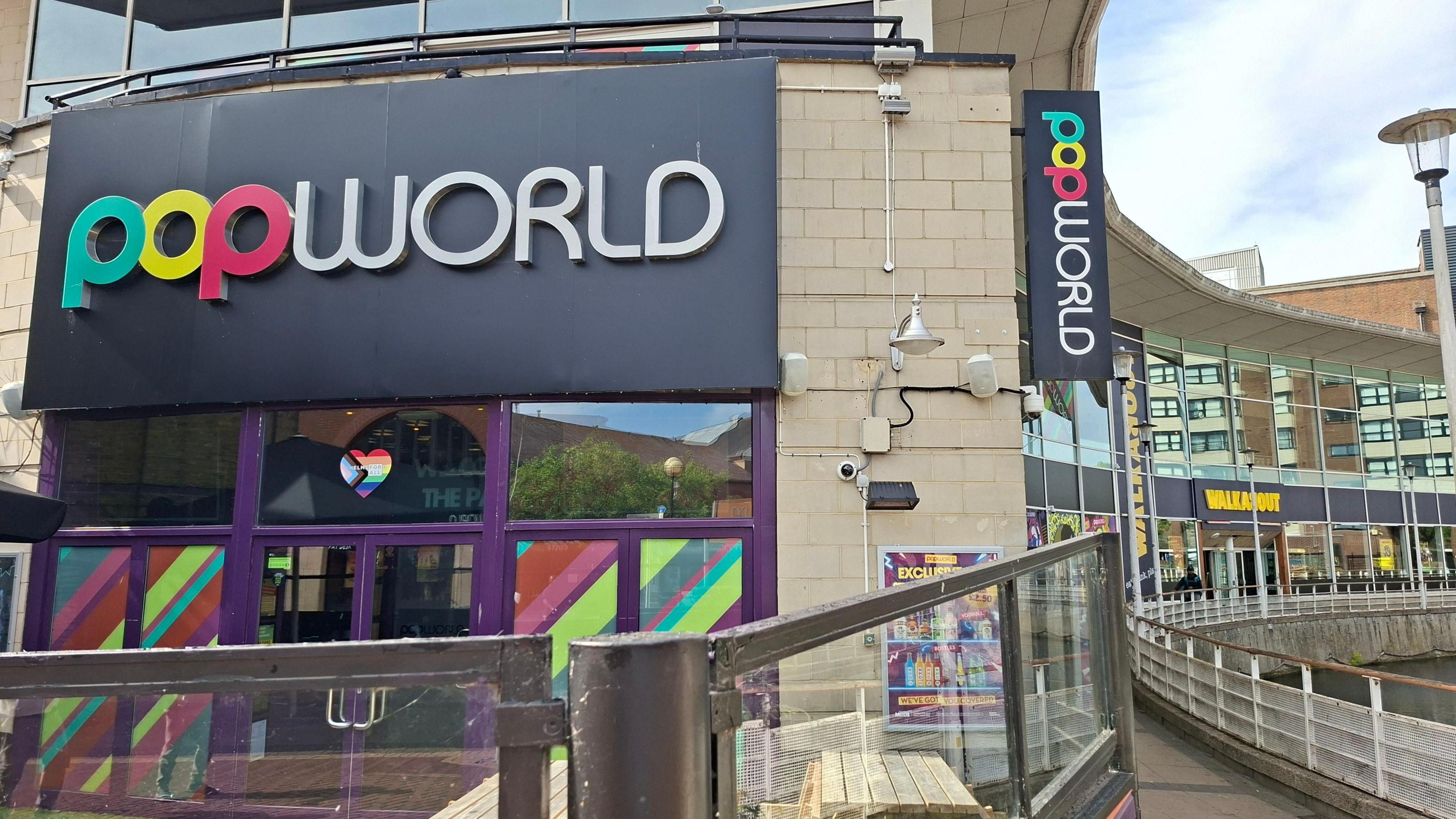
- Published4 July
